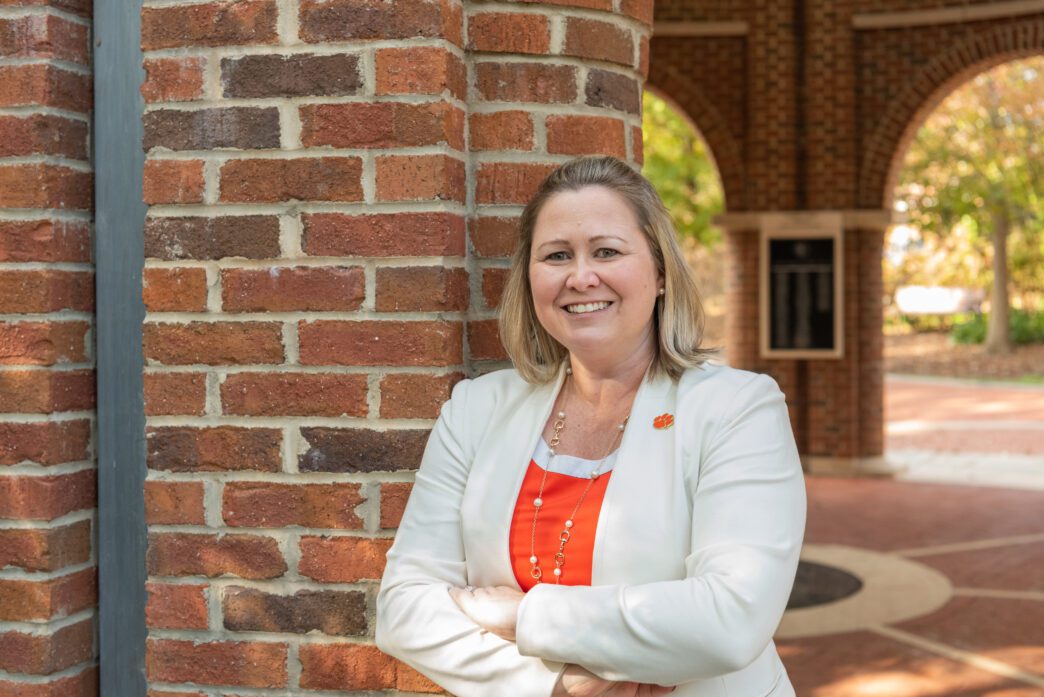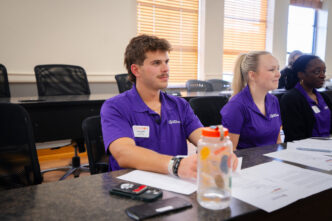Editor’s Note: The monthly “Elevate Well-Being” blog series shares thoughts and reflections of Clemson Well-Being Council members and University faculty and staff. Our latest blog is courtesy Kristin Walker-Donnelly, Ph.D., director of assessment for the Division of Student Affairs.
You might be thinking – an assessment person writing about well-being. Seems odd. It started with a call in September 2021 from George Smith, senior associate vice president for student affairs, inquiring about Clemson and national data on student well-being. Emerging from modified COVID-19 operations, his request was not unusual but sparked a discussion about Clemson and well-being.
A month later a retreat occurred where well-being was identified as a component of delivering the No. 1 student experience. Employees and students in attendance agreed – focusing solely on student well-being would be a missed opportunity. For our students to be well, our employees needed to be well. If you are familiar with the work of Jim Collins and his term – “Big Hairy Audacious Goals – BHAGs” – the retreat yielded three BHAGs that have been accomplished:
- Having a university-wide definition of well-being to drive a shared vision and common language
- Implementing an online employee “training” to foster a culture of care and resources
- Hiring the university’s inaugural chief well-being officer to champion an enterprise-wide approach to positively impact well-being
In addition to the above goals came the charge to identify how to measure key actions of Initiative 3: Promote the Clemson Experience with Clemson Elevate. Discussions led to developing a brief, pulse-style survey that would involve undergraduate and graduate students in the university’s strategic plan like never before. The “Power of the Paw Survey” would collect feedback twice a year on topics such as University values, well-being, belonging and feelings about preparedness for post-graduation success. What we learned about student well-being from the 4,500+ students who responded in Fall 2024 was:
- 81% categorized their overall well-being as excellent, very good, or good on a five-point scale (3% higher than Fall 2023)
- 88% felt that health and well-being was a priority at Clemson (2% higher than Fall 2023)
- 86% felt the campus climate encourages open discussion about health and well-being (same as Fall 2023)
- 92% were aware of the tools and services available to support health and well-being (1% higher than Fall 2023)
- 89% successfully accessed tools and services needed to support their health and well-being (2% higher than Fall 2023)
Last spring, the survey also gathered 2,300 qualitative student responses on making the most of the Clemson experience. The most common advice and phrase used was: “get out of your comfort zone.” They recommended students meet new people, get involved and connect to communities to balance life inside and outside the classroom experience. Consistently, responses emphasize the importance of community and well-being.
Although we started with Power of the Paw (PoP), it’s in no way a final destination to assuring well-being for all. There are things you might be wondering…
How can I support student well-being?
- In our hyper-connected yet disconnected world, smiling at someone or expressing hello or thank you seems simple, yet you might be the first to do so – especially in-person. Try it before a class, meeting or event starts or even while opening a door or waiting for an elevator. Try it just because connecting with another person could make a difference in another person’s day. Someone feeling “seen” could have a profound influence on how they are feeling, create a connection and help create a culture of care.
- Beyond striving academically or with research, encourage students to meet new people, join a club or organization, attend an event, see a speaker or experience a Clemson tradition. You could ask if your students have done any of these things in the last week or two – they may not know the power and potential of creating a holistic and unique Clemson experience.
- You may notice a student in need but may not know how to help. We’ve got you! If you have not taken, or would like a refresher, we have an online training on Well-Being at Clemson. Feedback received from faculty and staff who piloted the course said they immediately printed and/or saved the resources to reference and share with students. Additionally, you can always refer students to our CARE Network.
- Undergraduate and graduate students will receive a link to the next Power of the Paw survey on Wednesday, Sept. 24. Reminders will go out through Your Clemson. QR codes will appear on digital signage across campus. Ask students you interact with – have you shared your voice? The more who share, the better!
Can I access PoP Data to inform what I do in my role at the University?
Yes! The PoP team is excited to launch a dashboard to support data-informed decision making on how we serve and support students. If you would like the PoP team to deliver a presentation to your college, division, department or group, or inquire how to access the dashboard, send the team an email.
The launch of Clemson Elevate created the momentum needed to advance well-being. Although we started focused on the student experience, the process has allowed the Clemson Well-Being Council to look more holistically at the whole community experience including faculty and staff.
Birma Gainor, director of Counseling and Psychological Services (CAPS), once said in a meeting – be careful what you dream of because Kristin will make it happen. Personally, I am still humbled by that statement because I never would have imagined what felt like a simple, routine data request would evolve into an unexpected highlight of my Clemson journey – making an impact on well-being through a data-focused role. I truly believe in challenging times, together – we’ve got this.








